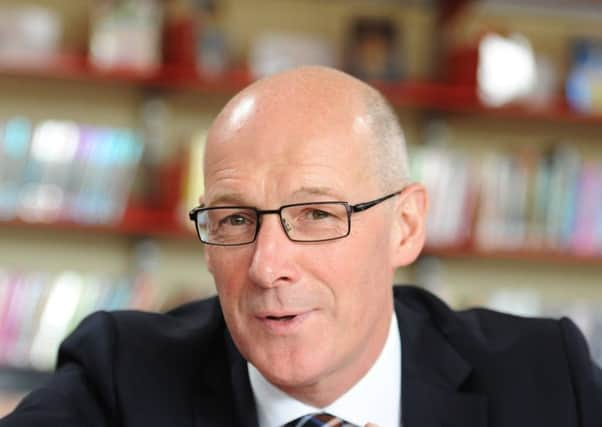Strike action looms as Scotland’s biggest teaching union rejects pay offer


The Educational Institute of Scotland will now move to ballot on strike action - but insist they are ready to listen to fresh offers from bosses.
The EIS is demanding a 10% pay rise over one single year to make up for years of freezes - but this branded unaffordable by Nicola Sturgeon. A staggered three-year deal was offered by the Scottish Government and other employers. It has been accepted by the smaller Scottish Secondary teachers Association (SSTA).
Advertisement
Hide AdAdvertisement
Hide AdBut EIS members rejected the deal by 57% to 43% yesterday with a turnout of 81%.
EIS General Secretary Larry Flanagan said: “EIS members have voted, by a very clear majority, to reject this pay offer.
“They have also expressed their willingness to move to a ballot for industrial action in pursuit of an improved pay settlement for Scotland’s teaching professionals.
“Although this was not a strike ballot, both the turnout and the number indicating a willingness to move to industrial action would have exceeded the strict thresholds set by the UK government in its restrictive The union’s executive committee will meet tomorrow to agree the next steps.
Mr Flanagan added: “The EIS remains open to further negotiations within the Scottish Negotiating Committee for Teachers but failing an improved offer, we will be initiating the process towards strike action.”
The deal had offered a 3% pay increase for those earning up to £80,000 in 2018-19, with those at or above that level receiving a flat rate increase of £1,600. Then in both 2019-20 and 2020-21 teachers would get a further 3% rise.
The SSTA has accepted the deal with 64 per cent of members voting in favour.
But SSTA President Kevin Campbell warned: “It is clear there is a great reluctance amongst members to accept the offer but many teachers are desperate for a pay rise.
Advertisement
Hide AdAdvertisement
Hide Ad“Despite this pay offer there is still a great deal of teacher unhappiness in our schools.”
Deputy First Minister John Swinney said the offer made by employers, which includes the Government and councils, is the best pay deal in the UK for any public sector worker.
“It would see every teacher receive a minimum 9% pay increase by April this year with a further 3% next year,” he said.
The EIS decision was by a “relatively narrow margin”, he added.
“A large number of teachers voted to accept the offer which clearly demonstrates the advantages they saw in the deal,” he said.
“This strong offer remains on the table. Industrial action in any of our schools would not be in the interest of teachers, young people or parents.”